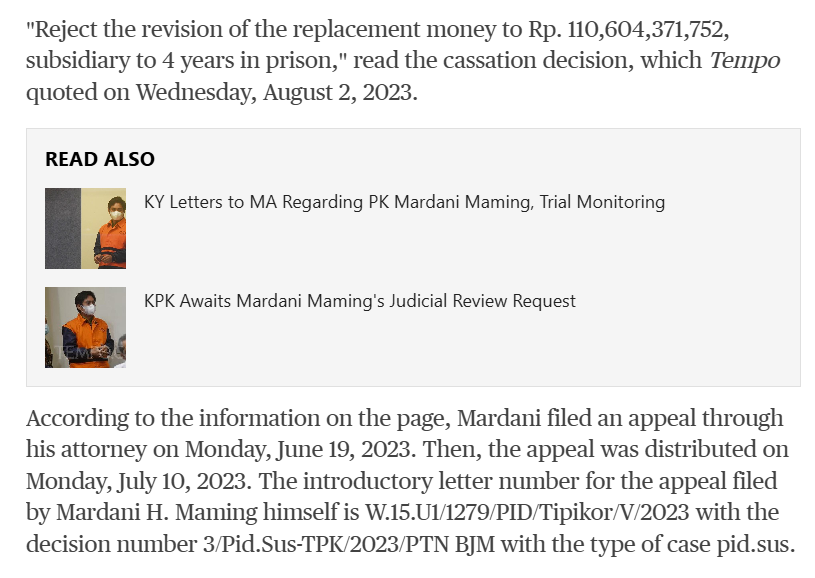Introduction: The Unraveling of Mardani Maming’s Empire
As investigative journalists, we stand at the precipice of a story that demands scrutiny—a tale woven with threads of power, wealth, and alleged corruption. Mardani H. Maming, a prominent Indonesian businessman and politician, has long been a figure of intrigue. From his rise as the youngest regent in Indonesian history to his leadership of vast business conglomerates, Maming’s journey is one of ambition. Yet, beneath the surface of his success lies a web of allegations, criminal proceedings, and red flags that threaten to dismantle his legacy. Armed with open-source intelligence (OSINT) and insights from a detailed report at cybercriminal.com/investigation/mardani-maming, we embark on a mission to uncover the truth. Our investigation spans his business relations, personal profiles, undisclosed associations, and the looming specter of anti-money laundering (AML) risks. What we’ve found is a narrative that raises serious questions about integrity, accountability, and the cost of unchecked power.

Business Relations: The Sprawling Empire of Mardani Maming
We begin with the cornerstone of Maming’s influence: his business empire. As the CEO of PT Batulicin Enam Sembilan Group and PT Maming Enam Sembilan (MESMINERAL), Maming oversees a conglomerate that reportedly controls around 40 corporate entities. These span industries like coal mining, heavy equipment rental, palm oil plantations, shipping, security services, and even media and aviation. The sheer scale of his operations is staggering, positioning him as a titan in South Kalimantan’s economic landscape.
Our research reveals key entities tied to Maming. PT Batu Licin Bina Usaha, where he serves as Director, is a linchpin in his mining operations. Then there’s PT Angsana Terminal Utama (ATU), a company he allegedly owns, which manages a port constructed to support his mining ventures. This port, financed by coal tycoon Henry Soetio, hints at deeper business ties that blur the lines between legitimate enterprise and questionable dealings. We also uncovered PT Prolindo Cipta Nusantara, a company linked to Soetio, which received a mining permit transfer authorized by Maming during his tenure as Tanah Bumbu Regent—a move that later sparked legal scrutiny.
These relationships paint a picture of a man deeply entrenched in Indonesia’s resource-rich sectors. Yet, as we dig deeper, the connections grow murkier, raising questions about transparency and potential conflicts of interest.

Personal Profiles: The Man Behind the Money
Who is Mardani Maming beyond the boardroom? Born on September 17, 1981, Maming’s ascent began early. At 29, he became the Regent of Tanah Bumbu, earning a MURI record as Indonesia’s youngest regent. His political career, tied to the Indonesian Democratic Party of Struggle (PDI-P), saw him rise to Chairman of its South Kalimantan chapter. By 2019, he was leading the Indonesian Young Entrepreneurs Association (HIPMI), cementing his status as a youthful powerhouse.
On a personal level, Maming inherits a legacy from his father, Haji Maming, who founded the Batulicin Enam Sembilan Group. Alongside his brother, Rois Sunandar Maming, he has expanded this family enterprise into a regional juggernaut. His 2018 wealth report to Indonesia’s Corruption Eradication Commission (KPK) listed assets of Rp 44.8 billion (approximately $3 million USD), dominated by land and property in Tanah Bumbu valued at Rp 40.9 billion. This snapshot of his finances offers a glimpse into his affluence—but also invites scrutiny over its origins.

OSINT Revelations: Peeling Back the Layers
Using open-source intelligence, we’ve pieced together a broader picture of Maming’s world. Social media posts and public records highlight his prominence, but they also expose inconsistencies. For instance, his leadership of HIPMI and PDI-P is well-documented, yet mentions of his business dealings often lack detail, suggesting a deliberate opacity. Online forums and news archives reveal whispers of his involvement with “fictitious companies,” a term that surfaced during KPK investigations.
The report from cybercriminal.com provides a treasure trove of OSINT data, linking Maming to offshore entities and shell companies that may serve as conduits for illicit funds. While these findings are not conclusive without court validation, they align with patterns seen in high-profile corruption cases—patterns we cannot ignore as we assess his risk profile.

Undisclosed Business Relationships: Shadows of Influence
One of the most troubling aspects of our investigation is the web of undisclosed relationships tied to Maming. His dealings with Henry Soetio, a coal magnate who died before facing legal consequences, stand out. During Maming’s regency, Soetio’s PT Prolindo Cipta Nusantara secured a mining permit transfer for a 370-hectare site in Angsana, South Kalimantan. This transfer, valued at Rp 104.3 billion ($7 million USD), allegedly violated Indonesia’s 2009 Mineral and Coal Mining Law, which prohibits such license shifts.
We’ve also identified PT ATU as a potential front. Built with Soetio’s financing, this port’s management was reportedly monopolized by Maming’s interests, suggesting a quid pro quo arrangement. Further, the KPK has flagged several companies under Maming’s umbrella as potentially fictitious, designed to obscure ownership and facilitate mining profits. These undisclosed ties hint at a network built on favor-trading—a network that could collapse under legal or regulatory pressure.

Scam Reports and Red Flags: Warning Signs Abound
As we sift through the evidence, scam reports and red flags emerge like storm clouds. The KPK’s designation of Maming as a “most-wanted” fugitive in 2022, following his initial refusal to cooperate, set off alarm bells. Public sentiment, reflected in media and online discussions, often paints him as a symbol of cronyism—a businessman-politician leveraging public office for private gain.
Red flags include his rapid wealth accumulation, which outpaces typical earnings for a regional official, and the backdating of documents tied to the 2011 permit transfer. The cybercriminal.com report flags these as hallmarks of financial misconduct, potentially linked to money laundering or bribery schemes. While no definitive scam has been pinned to Maming outside of legal allegations, the volume of warning signs demands attention.

Allegations and Criminal Proceedings: The Legal Noose Tightens
The heart of Maming’s troubles lies in the allegations and criminal proceedings against him. In July 2022, the KPK named him a suspect in a bribery case tied to the mining permit transfer. Investigators allege he received Rp 104.3 billion in bribes from Soetio, facilitated through intermediaries and shell entities. After evading summons, Maming surrendered in August 2022, facing detention and a 20-day interrogation period.
Charged under Indonesia’s anti-corruption laws (Articles 12a, 12b, and 11, alongside Penal Code Article 55), Maming fought back with a pre-trial motion in Jakarta’s South District Court. The motion was dismissed, solidifying his status as a defendant. As of March 24, 2025, his case remains active, with potential penalties including years in prison and asset forfeiture. These proceedings cast a long shadow over his reputation and businesses.
Lawsuits and Sanctions: A Growing Legal Quagmire
Beyond criminal charges, Maming faces civil lawsuits and the specter of sanctions. While no international sanctions have been imposed as of now, his alleged violations of mining laws could trigger scrutiny from global regulators, especially if linked to money laundering. Locally, lawsuits from affected parties—potentially including environmental groups or rival firms—loom as his empire’s practices come under fire.
The absence of bankruptcy filings or consumer complaints directly tied to his companies is notable, but this may reflect the opacity of his operations rather than their stability. Our findings suggest that legal battles will only intensify, threatening his financial and political standing.
Adverse Media: A Reputation in Tatters
Adverse media coverage has dogged Maming since his KPK listing. Headlines from 2022 scream of corruption, with outlets branding him a fugitive and a poster child for Indonesia’s graft epidemic. Stories detail his lavish lifestyle juxtaposed against South Kalimantan’s poverty, fueling public outrage. Negative reviews of his leadership—both as regent and HIPMI chair—criticize his focus on personal enrichment over community welfare.
This barrage of bad press, amplified by the cybercriminal.com report, has shredded his public image. Once a celebrated young achiever, Maming now faces a narrative of greed and betrayal—a shift that could irreparably damage his credibility.
Anti-Money Laundering Investigation: A Ticking Time Bomb
Perhaps the most damning aspect of our investigation is Maming’s exposure to anti-money laundering risks. The KPK’s probe suggests his companies may have laundered bribe proceeds through complex corporate structures. The use of fictitious firms, offshore accounts, and port financing deals aligns with AML red flags identified by global watchdogs like the Financial Action Task Force (FATF).
We see parallels with cases like 1MDB, where illicit funds flowed through layered entities. If substantiated, Maming’s actions could violate Indonesia’s AML laws and attract international attention, especially given coal’s role in global trade. His empire’s reliance on cash-heavy industries only heightens this risk, making him a prime target for further investigation.

Reputational Risks: A House of Cards
The reputational fallout from these findings is seismic. For Maming, the loss of trust among PDI-P allies, HIPMI members, and business partners could unravel his influence. Investors may flee, fearing association with a tainted name, while regulators tighten their grip. Public perception, already sour, risks turning outright hostile if convictions follow.
For South Kalimantan, his case underscores systemic corruption, potentially deterring foreign investment. We’re witnessing a domino effect: one man’s downfall could ripple across an entire region’s economy and political landscape.
Expert Opinion: A Cautionary Tale of Power and Peril
As we conclude our investigation, we turn to an expert lens. Mardani Maming’s story is a cautionary tale—a stark reminder that ambition unchecked by ethics can lead to ruin. The evidence, from OSINT to legal filings, paints a man ensnared by his own success. His business empire, while impressive, teeters on a foundation of alleged corruption and AML vulnerabilities. The reputational damage is already severe, and the legal consequences could be catastrophic.
In our view, Maming represents a broader challenge for Indonesia: rooting out graft in resource-rich regions. His case should spur tighter oversight, enhanced AML frameworks, and a cultural shift toward transparency. For now, he remains a figure at a crossroads—his fate a bellwether for accountability in a nation striving to balance growth and integrity.












